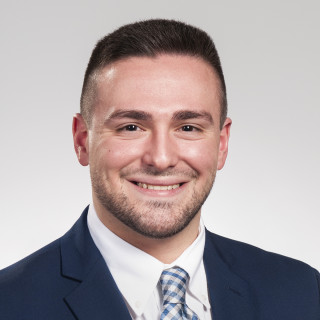This past year, I made the decision to take a gap year between my MS3 and MS4 years to complete a Master of Public Health. I made this decision because I saw far too many patients during my clerkships being left behind by our medical system. Patient after patient would discuss issues with affording their medications, accessing specialists, or obtaining reliable transportation for follow-up care. One patient story that sticks out was a mother with CHF, who had been admitted to the hospital multiple times. In the last encounter, she spoke about having to decide between affording her medication or putting food on the table for her young children. This was during the height of the pandemic when schools were closed, and now she was forced to buy additional food, as her children would not be receiving free breakfast and lunch. With all of the stress the pandemic was causing, it was truly upsetting to see that patients had to deal with basic issues such as affording their medications. But it also forced me to realize that there are numerous factors outside of the hospital that can significantly impact patients’ health and well-being. The public health program has afforded me the tools to evaluate our health care system through a different lens. Additionally, it has offered me the chance to truly learn how to best advocate for the diverse needs of various patient populations.
Interestingly enough, there is some data indicating that medical students currently have minimal understanding of core public health or health care concepts. For instance, one of the most important pieces of health care legislation that has been passed in the last half-century, the Patient Protection and Affordable Care Act, which impacts our health care system and patients in a multitude of ways, is poorly understood by medical students. When surveyed, a majority of students reported not having a basic understanding of the legislation, and even more worrisome, a large portion did not have any opinion of it at all. Similarly, another study indicated that students have little knowledge of Medicaid, with only a few students having any knowledge of Medicaid expansion within their states. These are significant gaps in understanding of the health care system. If medical students have little knowledge of these fundamental topics, what else may be falling through the cracks? How much could patients benefit if these gaps were filled, and future physicians truly understood the health care system they were operating within?
While I truly enjoyed the MPH program and believe my future patients will benefit from this public health perspective, I realize that it is not realistic for every medical student to take a gap year and complete a dual degree program. But I do believe that aspects of the program should be added into our present-day medical school curriculum. Understanding the detrimental developmental effects of lead is essential, but having awareness that 95% of houses in certain Philadelphia areas are laden with lead paint is equally important if going to medical school in Pennsylvania. Yet, that is a piece of information that would not necessarily be required for our medical school curriculum. Similarly, we all extensively learn about renal physiology and how the kidneys regulate an adequate fluid volume. But what about the Safe Drinking Water Act or the increasing presence of endocrine-disrupting compounds in the water we consume? Issues that directly impact the water our kidneys will eventually be filtering. Finally, medical students become certified in ACLS, and learn how to efficiently manage an acute coronary syndrome event, but we never learn about availability of healthy food. Frequently in lower socioeconomic communities, there are significant obstacles to obtaining healthy food, but unhealthier fast-food options are quite prevalent. Each of these examples demonstrates that just learning about physiology or pathology does not allow us to thoroughly help our patients. Medical students, residents, and attendings must be well-informed advocates for their patients, in all aspects of their lives. The current medical school curriculum is failing students and future patients.
One potential avenue to fill this gap would be for medical schools to adopt a “mini-MPH” course or elective. In this elective, the students would participate in high-yield public health lectures and conversations discussing foundational topics. Classes would cover important concepts in environmental health, health policy, epidemiology, and statistics. While this elective is not equal to a comprehensive public health program, it would begin to make medical students aware of important issues our future patients may face outside of the health care system. Additionally, medical students would have a better understanding of the way in which our health care and health insurance systems function. The outcome from this truncated public health experience would be a group of future physicians that are well rounded and better able to handle any clinical or public health obstacle they may face during their career.
What components of public health do you wish you would have learned in medical school? Share in the comments.
Nicholas S. Imperato is a current fourth-year medical student at the Philadelphia College of Osteopathic Medicine and Master of Public Health student at Thomas Jefferson University.
Image by Alphavector / Shutterstock







